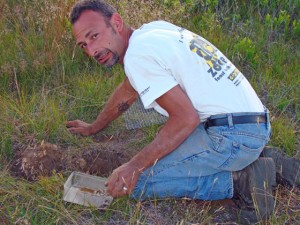Tuesday, October 10th
In-Person Meeting
Virtual Zoom Option
7:30 PM EST
Dr. Christine Dodge
Dept. of Entomology, University of California Riverside
USDA-APHIS-PPQ-S&T Forest Pest Methods Laboratory
Trials, travels, and tribulations: the evolution of a biological control program
ABSTRACT: Biological control, the use of natural enemies to control a pest, can be a highly effective way of controlling pest populations and mitigating damage. However, a tremendous amount of work goes into ensuring that a biocontrol program will be successful, effective, and safe. As a loose average, it takes five to ten years to develop a biocontrol program, from the first detection of a pest of concern to the release and monitoring of its natural enemies. My work focuses on two invasive insects with very different biologies: a species complex of ambrosia beetles known as shot hole borers (Euwallacea fornicatus species complex); and box tree moth, Cydalima perspectalis, a newly invasive but fast-spreading ornamental pest. These programs are at different stages in their development, and each poses unique challenges. In this talk, I will discuss the intricacies of each of these systems, share tales from the lab and field, and detail the progress that has been made in building each of these biocontrol programs.
NOTICE: Welcome back to CEC meetings of the 2023-2024 academic year! We will be holding hybrid meetings to accommodate COVID-19 precautions and audience members from around the world.
For those able to attend in person, we will have an informal dinner with the speaker at 6:00 pm at the Cambridge Common Restaurant. Our formal meeting runs from 7:30 – 9:00 pm in the Gilbert Room 101A of the Museum of Comparative Zoology (there will be signs to help direct). The meeting will begin with club announcements, followed by a 60-minute presentation by the invited speaker and Q&A. Membership is open to amateur and professional entomologists.




